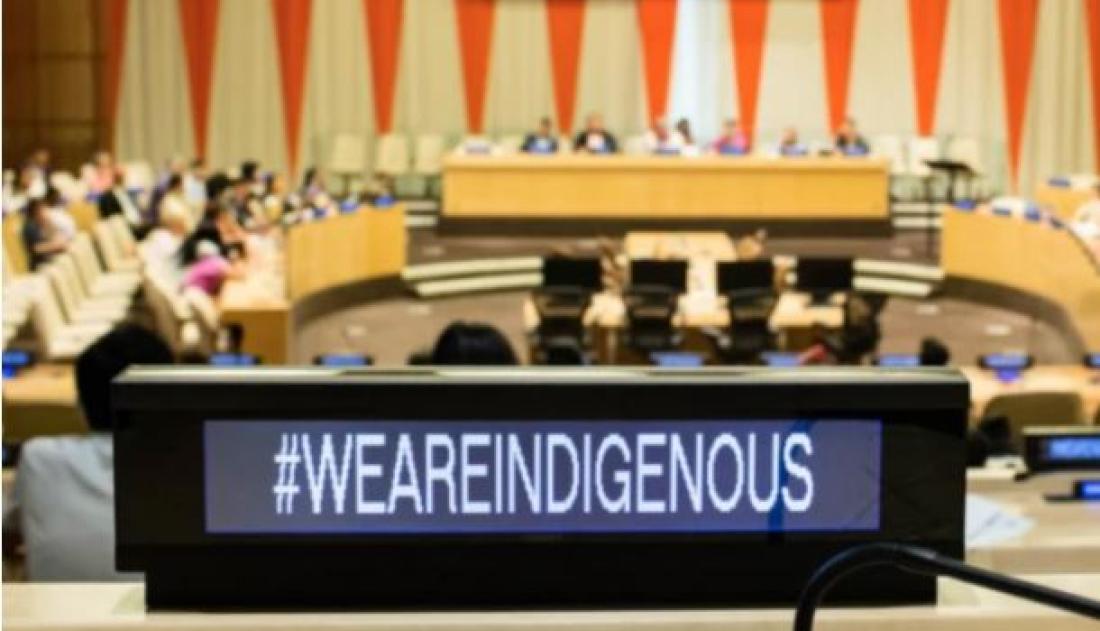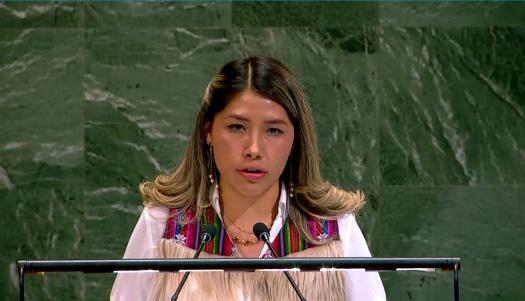
On 12 July 2022, in a communication issued by the President of the Economic and Social Council, H.E. Collen Vixen Kelapile announced the appointment of eight members, nominated by indigenous peoples’ organizations to the Permanent Forum on Indigenous Issues for a 3-year term beginning 1 January 2023 and concluding on 31 December 2025 in accordance with ECOSOC resolution 2000/22. The Council will take note of these appointments at the ECOSOC Management Segment session on 21-22 July.
The eight members appointed by the President of the Council are the following:
Ms. Hindou Oumarou Ibrahim* (Chad)
Ms. Aluki Kotierk (Canada)
Ms. Naw Ei Ei Min (Myanmar)
Ms. Hanieh Moghani (Islamic Republic of Iran)
Mr. Dario Mejia Montalvo* (Colombia)
Ms. Valentina Sovkina (Russian Federation)
Mr. Geoffrey Roth* (USA)
Ms. Hannah McGlade* (Australia)
(* Re-elected)
On 13 April 2022, at the 10th plenary meeting of ECOSOC (Decision E/2022/213), the Council elected the government-nominated Members to the Permanent Forum on Indigenous Issues for a 3-year term beginning 1 January 2023 and concluding on 31 December 2025.
The elected Members are the following:
- Mr. Vital Bambanze* (Burundi)
- Mr. Bornface Museke Mate* (Namibia)
- Mr. Ali Hajilari (Islamic Republic of Iran)
- Ms. Nan Li (China)
- Mr. Suleiman Mamutov (Ukraine)
- Mr. Rodrigo Eduardo Paillalef Monnard (Chile)
- Ms. Tove Søvndahl Gant* (Denmark)
- Mr. Keith Harper (USA)
(* Re-elected)
According to ECOSOC resolution 2000/22 “the Permanent Forum on Indigenous Issues consists of sixteen members, eight members to be nominated by Governments and elected by the Council, and eight members to be appointed by the President of the Council following formal consultation with the Bureau and the regional groups through their coordinators, on the basis of broad consultations with indigenous organizations, taking into account the diversity and geographical distribution of the indigenous people of the world as well as the principles of transparency, representativity and equal opportunity for all indigenous people, including internal processes, when appropriate, and local indigenous consultation processes, with all members serving in their personal capacity as independent experts on indigenous issues for a period of three years with the possibility of re-election or reappointment for one further period; States, United Nations bodies and organs, intergovernmental organizations and non-governmental organizations in consultative status with the Council may participate as observers; organizations of indigenous people may equally participate as observers in accordance with the procedures which have been applied in the Working Group on Indigenous Populations of the Subcommission on the Promotion and Protection of Human Rights.”
 Welcome to the United Nations
Welcome to the United Nations


